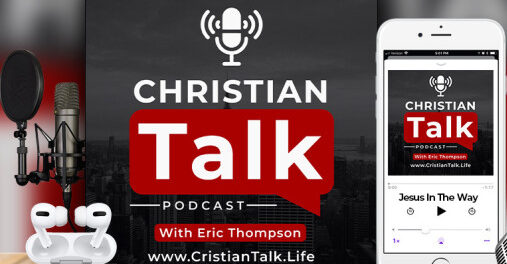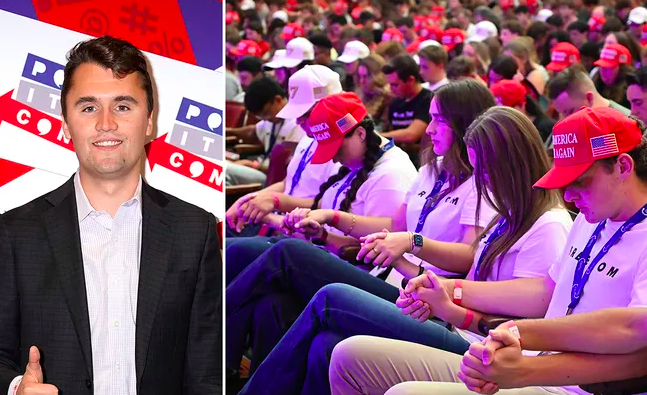The assassination of conservative activist Charlie Kirk has unexpectedly sparked a surge in church attendance across the United States, with pastors reporting a particularly strong return among young people. The phenomenon, already being dubbed the “Charlie Kirk Effect,” has been observed in Catholic, Protestant, and non-denominational congregations nationwide, with many churches experiencing crowds they have not seen in years.
Kirk, the 31-year-old co-founder of Turning Point USA and leader of TPUSA Faith, was fatally shot earlier this month during a Q&A session at Utah Valley University. His sudden death, committed by a 22-year-old suspect reportedly motivated by hostility toward Kirk’s Christian beliefs, shocked Americans and drew global attention.
For many, especially young adults, the tragedy has been a sobering reminder of the brevity of life and the need to reevaluate eternal questions.
JP De Gance, president of Communio—a ministry that equips churches to evangelize more effectively—told The Christian Post that numerous congregations across states like Pennsylvania, Michigan, Illinois, Ohio, and Colorado have reported significant spikes in attendance since Kirk’s murder. Notably, many of those filling the pews are young adults who had long abandoned church life. “One church in Michigan said a number of young adults who hadn’t been seen in years showed back up,” De Gance shared.
The increase is not confined to a single denomination. Reports indicate that Anglican parishes, evangelical congregations, and Catholic churches are all seeing a rise. Priests and pastors alike confirm that people are not merely attending services but also engaging in deeper practices such as Bible reading and prayer.
Observers suggest that Kirk’s death struck a chord because he was young, bold, and vocal about his faith. Many Gen Z and millennial Americans, who often feel immune to mortality, are now confronting the reality that life can be cut short unexpectedly. “It causes people to ask, ‘What am I living for right now?’” De Gance explained. This introspection is motivating young men and women to seek community, stability, and eternal truth in the church.
National polling data appears to confirm this trend. A recent Barna Group study, released earlier this month, shows that Gen Z churchgoers attend services at higher rates than their older counterparts, averaging nearly two visits per month. Even more striking, Barna reports that monthly attendance among the youngest U.S. adults has nearly doubled since 2020, a time when the nation was reeling from COVID lockdowns and cultural upheaval.
The assassination of Kirk seems to have accelerated this revival, serving as a catalyst for young Americans to rediscover faith. In some regions, pastors report that youth groups are growing rapidly, and church-run events—whether Bible studies or even casual gatherings like sports or game nights—are attracting newcomers eager for community. “Where there’s authentic person-to-person community, meaningful relationships can form. And in that context, testimony can be shared,” De Gance noted.
Critics on the left have dismissed such revivals as temporary or emotionally driven. Yet history shows that tragic events often spark religious awakenings, particularly among younger generations searching for stability and truth in uncertain times. The 9/11 attacks, for example, briefly increased church attendance nationwide. The difference now, however, is the sustained pattern of Gen Z participation in worship and their openness to Christian teachings on marriage, family, and identity—issues Kirk himself championed.
Conservative commentators argue that this moment underscores the hunger among young Americans for unshakable truth in a culture adrift. For many, Kirk’s willingness to stand unapologetically for biblical values, even in the face of fierce opposition, provides a powerful example. His martyr-like death has, in effect, amplified his message beyond what he could have accomplished in life.
There is also a practical dimension to this revival. Churches are being urged not to waste the moment but to create welcoming environments where newcomers can connect relationally. Leaders are being encouraged to host activities that foster trust and friendship, such as recreational outings and family-centered events. By doing so, pastors hope to ensure that those returning to faith do not slip away once the initial wave of emotion fades.
Importantly, this revival is not confined to traditional “Bible Belt” regions. Reports from Midwest states and urban areas show that the hunger for spiritual grounding is spreading far beyond conservative strongholds. Some youth leaders are even describing this shift as the beginning of a new chapter in American Christianity, where Gen Z may become more faithful than many expect.
Supporters of Kirk emphasize that his legacy is living on through this movement. By inspiring thousands of young people to return to church, his death is producing fruit that aligns with his life’s mission: strengthening the Christian witness in America and calling the next generation to stand boldly for biblical truth.
What remains to be seen is whether this renewed churchgoing momentum will continue in the months ahead. Faith leaders believe it will, provided congregations remain intentional in shepherding those who are seeking answers. But one reality is already clear: out of the ashes of a national tragedy, a revival is stirring—and young Americans are leading the way.





